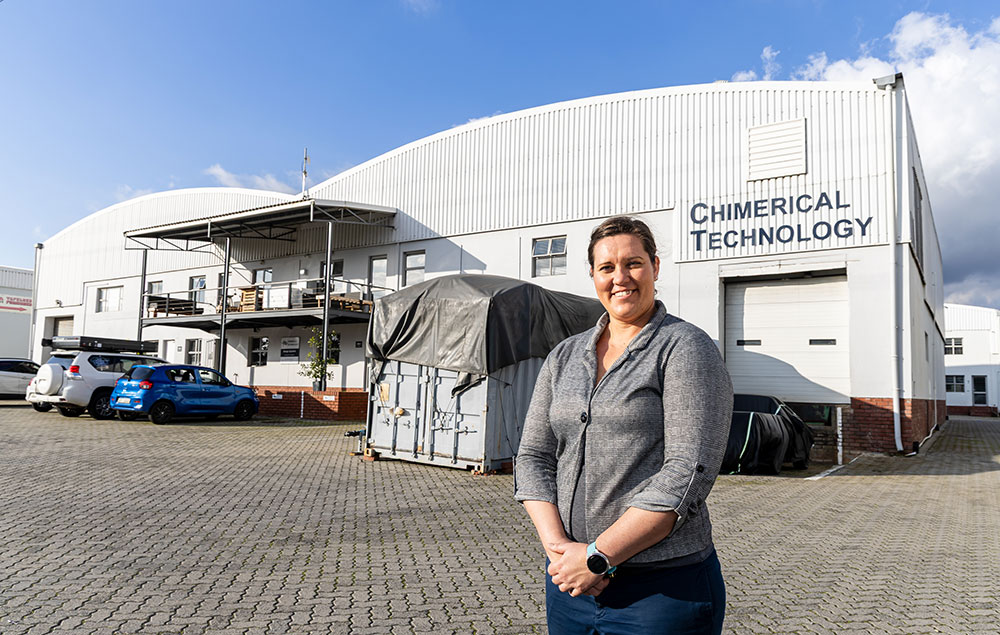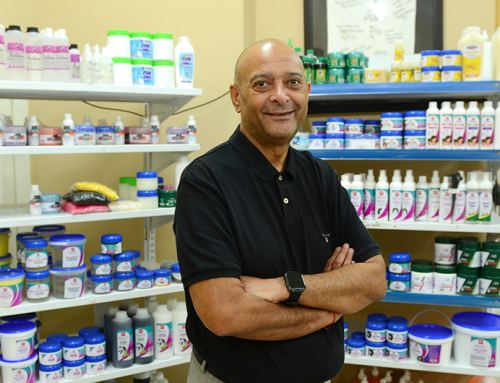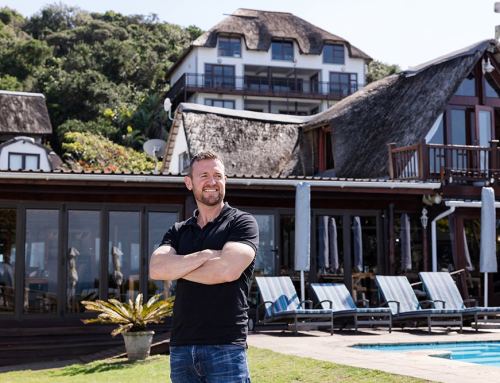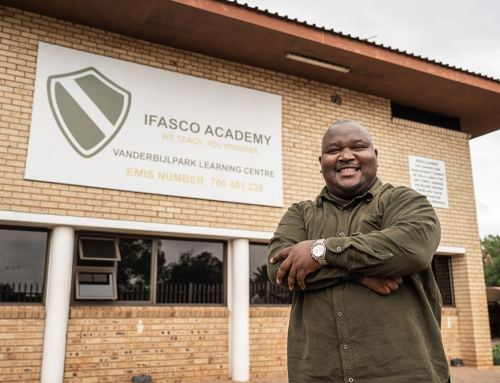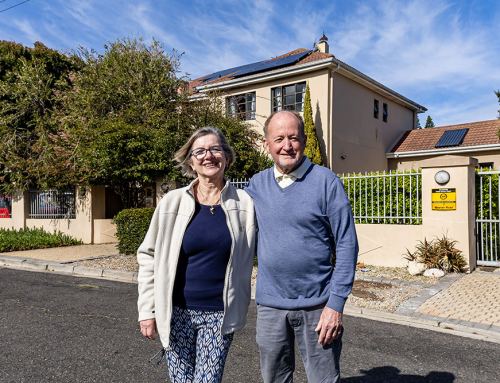While most entrepreneurs typically start their businesses in their late thirties, after first spending years learning the ins and outs of an industry by working for someone else, especially before venturing out into a world as difficult as mining.
But not Les-Lee Thompson, who after just four years of working as a chemical engineer started Chimerical Technology. The Somerset-West-based entrepreneur’s first client was a uranium mine in Kazakhstan, where she introduced an innovative new method of recovering chemicals from water used to process uranium ore.
In certain ways Chimerical Technology’s birth was charmed. Les-Lee started the Kazakhstan project while she worked, “at the feet of the masters,” she says, for the engineering giant Aveng. As part of a major restructuring of the company, the plug was pulled on the Kazakhstan project. “I was heart-broken,” says Les-Lee, who had been tremendously excited at the prospect of seeing some of her first engineering solutions implemented.
Fortunately, the client was keen on having the project continue, and Aveng gave Les-Lee the green light to take it over independently. Just like that, Chimerical Technology was born overnight, with its employees, premises and first international client already set up. But looking back on that moment a decade later, Les-Lee can see what a bold leap of faith it was, one that set the stage for a remarkable entrepreneurial journey.
Devising a chemical engineering solution in the lab is one thing, implementing it in an operational mine is enormously risky, and that is just the engineering side of things. What if the client disputed any part of the deal, or paid short or late? – scenarios all too familiar in the world of mining. A large company like Aveng can absorb such a hitch, but not a fledging business like Chimerical Technology.
Fortunately, the project not only went smoothly, but gave Chimerical Technology a platform from which to sell the solution to other mines all over the world, and to develop sought-after expertise in membrane systems that can be applied in processes ranging from rare earths extraction to water decontamination in mining and agriculture.
Despite the relatively smooth start, Les-Lee who had been deeply immersed in the technical aspect of her business, had to learn how to think commercially about all aspects of a whole business. “I had to learn to think like a business owner, about contracts, cash flow, HR. I gained a whole new respect the amount of work that goes into those sides of a business,” she says.
Today, Chimerical Technology operates as a truly international enterprise. The financial and administrative side of the business is managed by a minority partner based in Germany. With a head office, project management and research and development based in Somerset West. With site work all over the world, Chimerical Technology has truly evolved from a bold startup into a global player in engineering innovation.
Another aspect of starting her own business that Les-Lee found surprisingly hard was raising project finance. Despite presenting solid contracts with multinational mining companies when approaching financiers, they consistently asked the same question: “Has anyone else successfully built this before?” Because Chimerical Technology’s solutions are highly innovative and tailored to each client, Les-lee’s answer was often invariably “no”, and so was the financier’s, who preferred to lend money for proven, off-the-shelf concepts only.
Her search for a more flexible funding partner brought her to Business Partners Limited, which agreed to finance a building for Chimerical Technology. The strategy was simple but effective: the building gives the business a tangible asset that the company can leverage to secure ongoing project finance.
During her negotiations for the finance, Les-Lee learned of Business Partners Limited’s Technical Assistance programme, through which Chimerical Technology took an interest-free technical assistance loan of R1,5 million to invest in top-of-the-range engineering software that significantly improved their output and productivity. The technical assistance loan also paid for the training of Chimerical Technology’s engineers, ensuring they could truly harness the power of the new software.
Les-Lee says although Chimerical Technology works on the cutting-edge of mining innovation, her approach is not to cling on to new ideas by protecting them through patents. It is much more profitable to share ideas and to build expertise through collaboration, a mindset which will allow the company to keep on innovating for many years to come.

